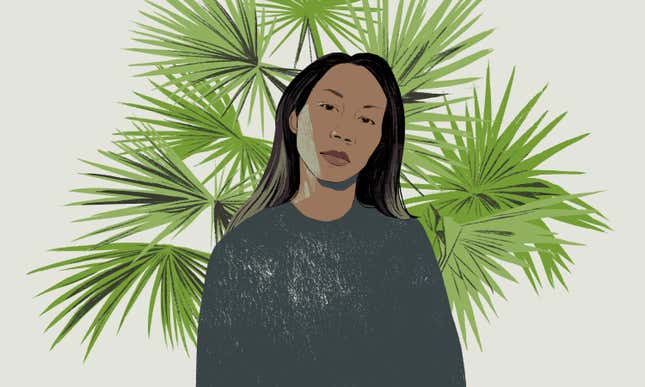'This Is Real Freedom of Speech': Young Cambodian Women Forge a New World Through Rap
Entertainment

On hot Phnom Penh afternoons, the rapper Jessica “Lisha” Srin finds her shade and solace within the darkness of recording studios. In the booth, Lisha spits bars in Khmer with unapologetic attitude. Her verses are brash, pumping with a badass intensity inspired by her decade-long love affair with hip-hop. With the help of a record label called KlapYaHandz, Lisha is working to defy Cambodia’s gender norms and promote the new Cambodia as progressive and cool with a lot of soul. For a country torn apart by genocide, it’s a way to redefine national identity, and re-instill homeland pride. For Lisha, a woman from a country that nearly demands women be seen and not heard, it’s an explicit means of expression and liberation.
When I spoke to Lisha, I was struck, immediately, by her voice; her English is flawless and her delivery confident with around-the-way flavor, the antithesis of the soft, high-pitched, baby-speak most Khmer women adopt to be “sopeup,” or ladylike. But Lisha isn’t pressed; she says she’s much more interested in being a “bad bitch” than a passive Barbie. Born 36 years ago to a single mother, Lisha represents an evolving breed of Cambodian women whose broadened generational thinking—fueled largely by greater access to the internet and its modern images, and by increased tourism from the Western world—is sparking a shift. Hip-hop is omnipresent.
“When I first heard hip-hop, I was like, ‘Whoa, this isn’t that typical, boring pop. This is real freedom of speech,” said Lisha, whose first introduction to hip-hop came in 1999 via DJ Sope, the self-proclaimed Cambodian P. Diddy, who learned about hip-hop when he and his family fled the Khmer Rouge and sought refuge in California. When Sope returned to Phnom Penh in the early ‘90s, he brought hip-hop with him and started playing Run-DMC and Afrika Bambaataa on Cambodian radio. Listeners had never heard anything like it.
The genre is definitely a departure from the love-drunk ballads most Khmer pop artists produce, especially songs by women, whose singing is usually super-soaked in syrup. Lisha is much more moved by hip-hop’s fiercely honest storytelling. “My life was like a rap song, you know? I’m from the ghetto. I’ve only seen my father three times. My mom, my little sister and me, we were just surviving,” she remembered.
-

-

-

-

-

-

-

-

-

-

-

-

-

-

-

-

-

-

-

-

-

-

-

-

-

-

-

-

-

-

-

-

-

-

-

-

-

-

-

-








































